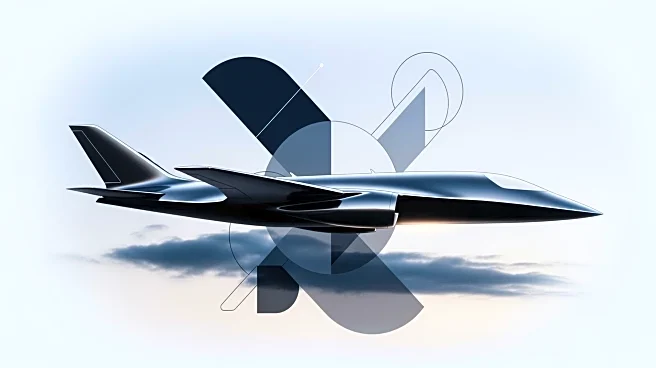What's Happening?
The Israeli Defense Forces (IDF) have initiated a new ground operation in Gaza, despite widespread skepticism about its potential effectiveness. Prime Minister Benjamin Netanyahu has promised that this offensive will be different from previous ones, aiming to decisively defeat Hamas. Historically, similar operations have not led to a lasting resolution, with the IDF previously taking control of Gaza City only to withdraw later. The current operation, named Operation Gideon’s Chariots II, is expected to inflict damage on Hamas brigades and infrastructure, and potentially pressure Hamas leadership to resume stalled negotiations over hostages. However, doubts remain about the operation's ability to achieve a decisive victory without a political plan or alternative governance in Gaza.
Why It's Important?
The significance of this operation lies in its potential impact on regional stability and international relations. A successful military campaign could weaken Hamas and lead to negotiations, but the absence of a political strategy may prolong the conflict. The operation risks increasing casualties among IDF soldiers, hostages, and Palestinian civilians, which could intensify international criticism and deepen Israel's isolation on the world stage. The U.S. administration, led by President Trump, currently supports Israel's actions, but this backing may waver if civilian casualties rise. The ongoing conflict could also influence Israeli domestic politics, with Netanyahu possibly using the situation to affect electoral outcomes.
What's Next?
As the operation progresses, several outcomes are possible. The IDF may achieve tactical victories against Hamas, but without a political resolution, the conflict is likely to continue. Netanyahu's upcoming visit to Washington will be crucial, as he seeks continued U.S. support amidst potential international backlash. The operation's impact on hostages remains a critical concern, with increased risks to their safety. The IDF's strategy may shift towards targeted actions rather than large-scale confrontations, reflecting Hamas's guerrilla tactics. The broader implications for Israeli politics and regional dynamics will unfold as the situation develops.
Beyond the Headlines
The ethical and humanitarian dimensions of the operation are significant. The potential for increased civilian casualties raises moral questions about the conduct of warfare and the protection of non-combatants. The destruction of Gazan neighborhoods and infrastructure could exacerbate humanitarian crises, affecting thousands of civilians. The operation also highlights the challenges of balancing military objectives with diplomatic efforts, as Israel navigates complex international relations and domestic pressures. Long-term shifts in regional power dynamics and governance structures may emerge from the ongoing conflict.










